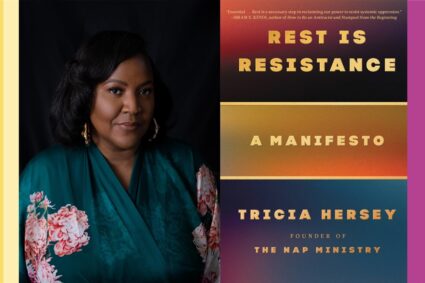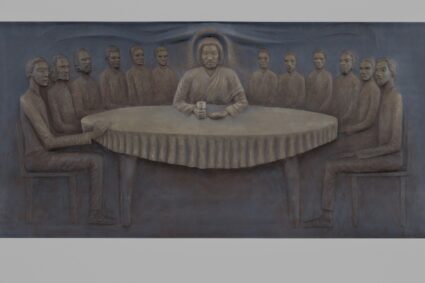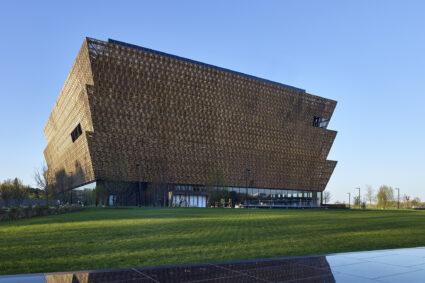
The Smithsonian’s National Museum of African American History and Culture (NMAAHC) is hosting a day of events exploring African American cultural traditions to commemorate Juneteenth, the holiday marking the day—June 19, 1865—that Union troops arrived in Galveston, Texas, and freed enslaved African Americans there some two and a half years after President Abraham Lincoln signed the Emancipation Proclamation. The holiday is part of a tradition of festivals commemorating the end of slavery, African American contributions to American life and freedom itself. The museum’s virtual programming and new educational resources can be found on its Juneteenth webpage.
“We have celebrated Juneteenth in my family for years,” said Kevin Young, the Andrew W. Mellon Director of NMAAHC. “But last year—in the midst of the murder of George Floyd and delayed justice for Breonna Taylor, Ahmaud Arbery and too many others whose names have become sadly familiar—this commemoration of liberty and justice took on more urgency.”
The museum’s virtual Juneteenth commemoration will include activities exploring the meaning of freedom and engaging in African American cultural traditions. Featured Juneteenth public programs include:
- Discussion with food writer Adrian Miller on his latest book Black Smoke.
- Genealogy presentation with an expert from the museum’s Robert Frederick Smith Explore Your Family History Center.
- Selection of stories told by Jan Blake reflecting the wisdom and strength of America’s post-slavery communities.
- Panel discussion on the origins and significance of Juneteenth.
- Musical performance and conversation with singer Amythyst Kiah.
“The goal of the museum’s programming this year is to help our visitors reflect on the meaning of Juneteenth and its traditions of music, food and freedom,” Young said. “We’re offering new ways for the public to join us in celebrating the holiday and the richness of African American culture, a culture born out of imagination, hard-won joy and resilience.”
Registration for the virtual programs is free and open to the public at https://nmaahc.si.edu/events/upcoming. The museum’s Juneteenth programs are supported by Ford Motor Co.
This year’s Juneteenth webpage provides information on the origins of Juneteenth, oral histories, educational activities and other resources, including:
- Video on the intersectionality in freedom celebrations, like Juneteenth, throughout the Black diaspora.
- Blog post series on the history, importance and observance of Juneteenth.
- Video cooking demonstration using recipes from the museum’s Sweet Home Café Cookbook.
Learn more by visiting the Juneteenth website at https://s.si.edu/2U4KKrr.
The museum is open Wednesdays through Sundays from 11 a.m.–4 p.m. To protect visitors’ and staff’s health, the museum has limited the number of passes available to enter. During this time, the museum cannot accommodate any walk-up visitors. For more information on visiting the museum and safety guidelines, visit https://nmaahc.si.edu/visit/plan.
Juneteenth Virtual Programming Schedule
Black Smoke: African Americans and the United States of Barbecue
10 a.m.–11 a.m. ET
Adrian Miller, food writer, James Beard Award winner, attorney and certified barbecue judge, joins Young and member of the Southern Food Alliance, in a conversation about Miller’s book Black Smoke. The two will discuss the perseverance, innovation and entrepreneurship of African Americans whose faces and stories have been marginalized from the history of American cuisine.
Genealogy & Records of Intrigue
12 p.m.–1 p.m. ET
The family history of an enslaved spinner and weaver will be traced from the era of the American Revolution to the turn of the century using reverse genealogy, which traces a family’s lineage beginning with their ancestors to their present-day descendants. Staff at the Robert Frederick Smith center will follow the historical footpath of a woman who lost children during slavery and the Civil War and survived to secure an account with the Freedman’s Bank. This presentation will demonstrate how one critical record links to a host of documents leading to an intriguing emancipation story.
Porch Stories: Tales of Slavery and Beyond
3 p.m.–4 p.m. ET
Daniel Black, novelist and professor of African American studies at Clark Atlanta University, will interview internationally recognized storyteller Jan Blake about how she weaves the African American experience into the body of her work primarily focused on the Black diaspora. Blake will share two stories—an Ethiopian tale titled Fire on the Mountain followed by her interpretation of a short story by Charles Chesnutt titled Mary and Moses. These stories, which speak to a multigenerational audience, share insights into the wisdom and strength of America’s post-slavery communities.
Juneteenth: Connecting the Historic to the Now
5 p.m.–6 p.m. ET
Young will moderate a panel discussion exploring the origins of Juneteenth and the historical and current political significance of the holiday. Panelists include Annette Gordon-Reed, Carl M. Loeb University professor of history at Harvard University; Jelani Cobb, the Ira A. Lipman Professor of Journalism at Columbia University; and Imani Perry, the Hughes-Rogers Professor of African American Studies at Princeton University.
Community Soundstage: A Conversation with Amythyst Kiah
7 p.m.–8 p.m. ET
Singer and songwriter Amythyst Kiah, whose latest album fuses rock and Kiah’s old-time country roots, will perform three acoustic numbers, including her breakout hit, “Black Myself.” In an interview with Dwandalyn Reece, associate director of curatorial affairs, Kiah will discuss her highly anticipated album, Wary + Strange, and her belief that music helps listeners recognize the intersection of historic and contemporary social justice challenges.
New Juneteenth Digital Resources
Freedom Celebrations Across the Black Diaspora with Curator Angela Tate
In this video, Angela Tate, curator of women’s history at NMAAHC, speaks about the importance of Juneteenth celebrations amongst various African diasporic communities. Tate discusses how Juneteenth celebrates freedom within the Black community and its differences across the Black diaspora, how the holiday has changed over the past decades and its recent reemergence during modern movements such as Black Lives Matter and other post-civil rights efforts.
Celebration through Cooking: Sweet Home Café’s Juneteenth Menu
In this video, Andre Thompson, web content specialist at NMAAHC, is joined by his family for an at-home cooking demonstration. Thompson will guide viewers step-by-step to make the perfect brisket with a twist. This dish, which can be included in any Juneteenth celebration menu, is based on a recipe from the museum’s Sweet Home Café Cookbook: A Celebration of African American Cooking.
HBCUs and the Newly Freed: Education After the Emancipation
While Juneteenth is often associated with celebrations of physical emancipations from slavery, it also signaled another type of liberation. Despite being barred from traditional institutions due to segregation laws, the newly freed pursued higher education through the over 90 schools and Historically Black Colleges and Universities (HBCUs) founded between 1861 and 1900.
Juneteenth Blog Series: A Curatorial Discussion
In this three-part blog series, museum experts share the cultural, modern and historical perspectives of Juneteenth from its first observance in 1865 to the present day. Tate; Mary Elliott, curator of American slavery; and Kelly Navies, oral historian, will answer questions about the origins and importance of Juneteenth.


